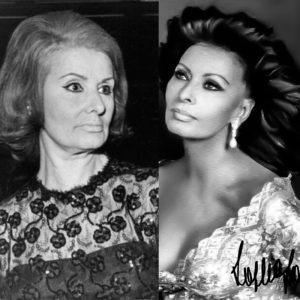
Bula Liebling is the mother of Roman Polanski. Bula Liebling’s son is one of the most notorious directors in Hollywood, Roman Polanski was as known for his tumultuous personal life as he was for his dark, disquieting, and quasi-autobiographical films. He is the recipient of numerous accolades, including an Academy Award, two British Academy Film Awards, nine César Awards, two Golden Globe Awards, as well as the Golden Bear and a Palme d’Or. After a childhood stained by Nazi atrocities, Polanski emerged from his native Poland with the Oscar-nominated “Knife in the Water” (1962). Who is Roman Polanski’s mother?
Bula Liebling: Bio Summary
| Full Name | Bula (aka “Bella”) Katz-Przedborska |
| famous as | Mother of Roman Polanski |
| Age | 43 years old at the time of her death |
| Date of Birth | April 20, 1900, Russia |
| Place of Birth | Russia |
| Zodiac sign | Taurus |
| Dead | 1943 |
| Nationality | Polish |
| Ethnicity | Polish |
| Children | Annette Polanski, Roman Polanski |
| spouse | Ryszard Liebling |
Who is Roman Polanski’s mother?
Bula Liebling was born on April 20, 1900, in Russia. Liebling is famous for being the mother of Roman Polanski. She is also the mother of Annette Polanski from her first marriage. Bula Liebling was of half-Jewish ancestry but was raised Catholic but later became agnostic. Roman Polanski’s mother was married twice. By her first husband, she had her daughter, Annette, Roman’s half-sister. Her second husband was Ryszard Polanski, (born Liebling), a painter and manufacturer of sculptures. Bula Liebling and her second husband were the parents of film director Roman Polanski.
What happened to Roman Polanski’s mother?
After living for some time in Paris, Bula Liebling and her husband decided to move the family back to Kraków in 1937. Two years later, the invasion of Poland by Nazi Germany started World War II. Kraków was soon occupied by the German forces, and the racist and anti-Semitic Nuremberg Laws made their family a target of persecution. This forced them into the Kraków Ghetto, along with thousands of the city’s Jews.
The family found themselves trapped in the Kraków Ghetto. When the ghetto was liquidated between June 1942 and March 1943, Bula and her husband were sent to Auschwitz where she was murdered. Bula Liebling was four months pregnant at the time she was taken to Auschwitz and killed in the gas chamber soon after arriving.
After Roman Polanski’s parents were taken in raids, the young Polanski spent his formative years in foster homes, surviving the Holocaust by adopting a false identity and concealing his Jewish heritage. Annette survived Auschwitz, where their mother was murdered, and left Poland forever for France.
Narrating his experience Roman Polanski said -“I had just been visiting my grandmother … when I received a foretaste of things to come. At first, I didn’t know what was happening. I simply saw people scattering in all directions. Then I realized why the street had emptied so quickly. Some women were being herded along it by German soldiers. Instead of running away like the rest, I felt compelled to watch.“
He went on to say- “One older woman at the rear of the column couldn’t keep up. A German officer kept prodding her back into line, but she fell down on all fours … Suddenly a pistol appeared in the officer’s hand. There was a loud bang, and blood came welling out of her back. I ran straight into the nearest building, squeezed into a smelly recess beneath some wooden stairs, and didn’t come out for hours. I developed a strange habit: clenching my fists so hard that my palms became permanently calloused. I also woke up one morning to find that I had wet my bed.“
Confused Polanski, who was hiding from the Germans at the time, witnessed his father being marched off with a long line of people. Polanski tried to get closer to his father to ask him what was going on and got within a few yards of him. His father saw him, but fearing that his son would be discovered by German soldiers, he whispered (in Polish), “Get lost!” His father was sent to the Mathausen concentration camp, which he survived and they later reunited. He returned in 1945, married Wanda Zajączkowska, for whom he changed his name to Ryszard Polański.

A five-hour video of Holocaust testimony recorded in 2003 by Roman Polanski for the visual history archive of the USC Shoah Foundation at the University of Southern California has been revealed to exist in an interview with the film-maker in the Hollywood Reporter.
ALSO, READ; Elvis Polanski: Inside the Life Roman Polanski’s son
Per The Hollywood Reporter’s Peter Flax who was given permission to watch the video, Polanski recounted his experiences during the Nazis’ wartime occupation of Poland in an interview recorded inside a “historic pharmacy”, followed by a tour around key areas of the city of Kraków, including the flat inside the former Jewish ghetto where his family lived.
Polanski also recalled the moment his father told him their mother [Bula Liebling] had been deported from the city to Auschwitz concentration camp, where she later died. “He started crying on the bridge. He burst into uncontrollable sobs. I didn’t cry right away and begged him to stop.”
Fact Check
We strive for accuracy and fairness. If you see something that doesn't look right and needs corrections, Kindly contact us!




